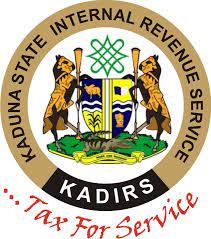Some development partners have trained personnel of the Kaduna State Internal Revenue Service (KADIRS) on Grievances and Redress Mechanisms (GRMs) in tax framework for improved revenue generation.
The training also featured internal control measures for improvement of tax within the KADIRS to curb excesses and leakages.
The partners, who facilitated the training, on Thursday, were Christian Aid, Partnership to Engage Reform and Learn (PERL) in collaboration with Tax Justice Network.
At the one-day training in Kaduna, Mr. Simeon Olatunde, Acting Secretary of Tax Justice Network, said the aim of the training was to bridge the gap in tax process by improving the GRMs and complaints mechanisms.
He added that the objective was also to ensure that tax framework in place in Kaduna were suitable, and promote fair, transparent and equitable tax system.
Olatunde noted that by building a formidable internal control measures for tax, the gap in tax processes in the state would be bridged.
Also, the Team Lead of PERL, Mr. Abel Adejo, said the training would expose the participants to practical and applicable knowledge of resolving issues of tax payers in their various organisations.
Kaduna moves to combat malnutrition with “Kwash Pap”
He said that PERL was unravelling reasons and bottlenecks behind issues on education, health, tax, among others, and addressing them by engaging stakeholders to proffer solutions.
He said the essence of the training was to ensure attraction of more citizens to paying tax through engaging in activities and businesses rather than taking it to other states.
Adejo noted that taxes in Kaduna State were used for development, especially on infrastructure and they would ensure all blockages were resolved to ensure effective service delivery to citizens.
“The training will ensure that taxpayers challenges are addressed,” he said.
Adejo called for review of tax collection in Kaduna, especially bordering on collectors of tricycle operators revenue, noting that they sometimes caused accidents and traffic on roads.
Also, Mr. David Tochukwu of Christan Aid said they started the training in Kaduna in March.
He said the training was necessitated by the need to expand it to accommodate more personnel of the KADIRS, to enhance revenue generation in Kaduna and the staff capacity in discharging their duties.
Emir lauds Kaduna AGILE as World Bank renovates 550 schools
“This will translate to taxpayers having value for their money and will be happy for contributions to the development of Kaduna State,” he said.
Earlier, Dr. Muhammad Lawal, Executive Director, Revenue Operations of KADIRS, restated the committment in re-ensuring ease in tax payments and addressing citizens complainants.
He urged the staff to maximise the knowledge they would acquire in the training for their self-betterment and the service at large.
Delivering a presentation on handling complaints and grievances, Dr. Mustapha Bagudo said complaints must be channelled or redirected to appropriate persons in organisations and follow-up must be made to ensure its resolution.
He noted that social media had become one of the most popular platforms for customer care and the handling of complaints, using the channels could say
lots about one’s business.
Bagudo stressed that when dealing with complaints on social media, an organisation must respond quickly by acknowledging it and letting the customer know when they could expect response.
He said an organisation or individual in business must acknowledge mistakes and offer genuine apologies and take ownership of the mistake.
“This can assist in calming the customer down,” he said.
Bagudo further said in addressing customer’s complaints or grievances, it must not be taken personal.
He said customers’ ease in paying tax and their satisfaction in quick address of their complaints and grief determined their willingness to engage in activities that would bring revenue generation to the state.
KADIRS personnel were drawn from the tax audit, ICT, revenue generation, tax payers service, finance and motor vehicle administration departments.
The training was funded by PERL and Christian Aid.
- Tinubu appoints Jim Ovia as Education Loan Fund chairman - April 26, 2024
- Ondo 2024: Akeredolu’s ex-deputy emerges PDP guber candidate - April 26, 2024
- Again, JAMB extends 2024 Direct Entry registration - April 26, 2024










